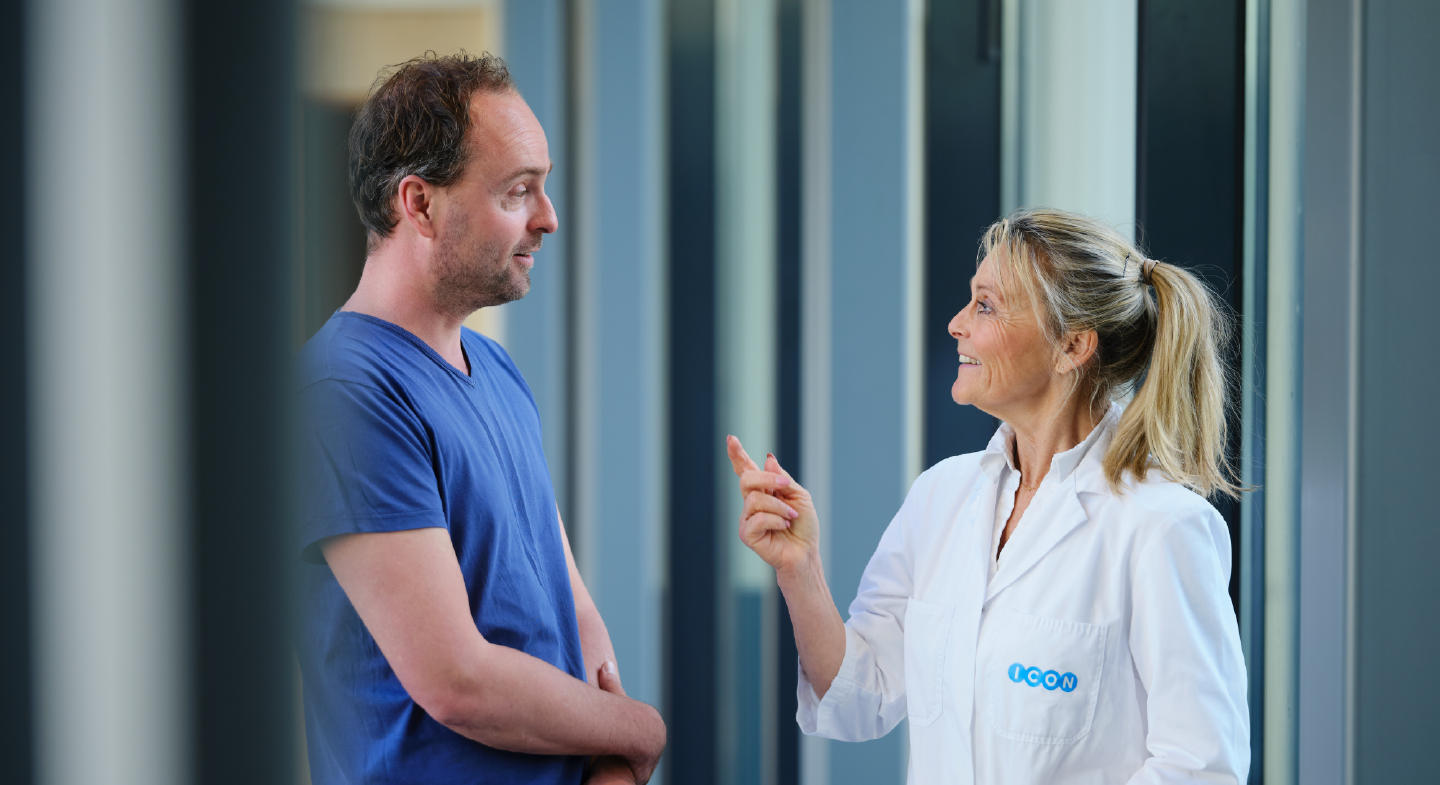
Clinical trials with radioactive-labeled medication
Radioactivity and clinical trials
ICON often conducts trials with medication that is radioactive-labeled. We call these 14C trials. There is less of a chance of side effects in a trial with radioactive-labeled medication.
Explanation of radioactivity in clinical trials
Watch the explanation video
Radioactive-labeled medication
Why trials with radioactive-labeled medication?
Before a new medication is launched on the market, it is mandatory that it is studied with radioactivity. In such a 14C trial, we study how your body absorbs, processes and eliminates a medicine. So we are not studying whether there are side effects. It is also not necessary to administer a high dose, reducing the chance of side effects. When you poop, pee or breathe out the radioactive-labeled medication, the radioactivity disappears from your body.
The natural background radiation in the Netherlands
Natural background radiation
Radiation is everywhere. It is in the soil, water, food, air, construction materials and even in space. This is known as natural background radiation. The natural background radiation in the Netherlands is approximately 2 to 2.5 millisieverts (mSv) per year. Even when you watch TV, sit at a monitor or in an airplane, you are exposed to radiation. That radiation is not harmful.
The average radiation during a clinical trial with radioactive-labeled medication
Radiation during a clinical trial
During a clinical trial with radioactive-labeled medication, you are exposed to less than 1 mSv. That is less than the radiation you encounter in daily life. Because we want to make sure that we safely perform 14C trials, the study doctor who conducts these trials is also a radiation expert.
More information
If you have any questions about trials with radioactive-labeled medication, please feel free to contact us. We would be happy to provide you with more information.
-
Yes. Before the drug is examined with radioactivity, it has already been extensively tested on humans in an earlier phase.
-
During a clinical trial with radioactive-labeled medication, you are exposed to less than 1 mSv. That is less than the radiation you encounter in daily life. Because we want to make sure that we safely perform 14C trials, the study doctor who conducts these trials is also a radiation expert.
-
We are not studying whether there are side effects. Therefore it is not necessary to administer a high dose, reducing the chance of side effects.
During a clinical trial with radioactive-labeled medication, you are exposed to less than 1 mSv. That is less than the radiation you encounter in daily life. Because we want to make sure that we safely perform 14C trials, the study doctor who conducts these trials is also a radiation expert.
During a clinical trial with radioactive-labeled medication, you are exposed to less than 1 mSv. That is less than the radiation you encounter in daily life. Because we want to make sure that we safely perform 14C trials, the study doctor who conducts these trials is also a radiation expert.
-
Clinical trials with drugs that are radioactively labeled is mandatory before a new medicine can be registered, and is therefore generally accepted. Radioactively labeling or marking a drug is done to be able to study how quickly and to what extent the drug to be studied is absorbed, converted and excreted in the body.
